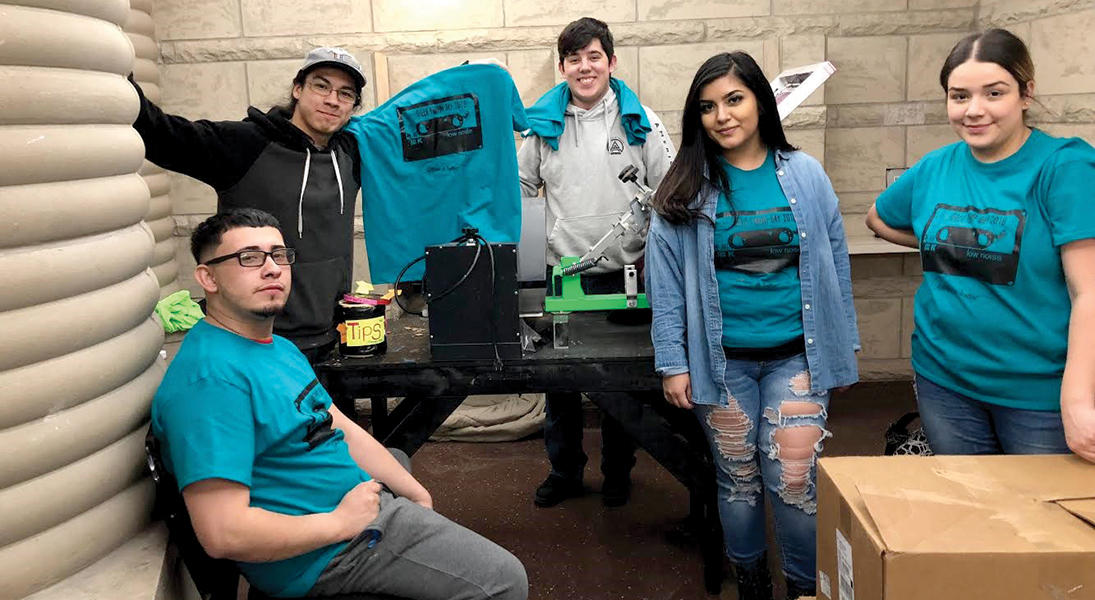Inspired by the creativity and bold thinking of anti-hunger ministries in the church, ELCA World Hunger launched the Big Dream Grants program to support ministries that are building and designing innovative and lasting solutions to hunger, poverty and economic inequality.
Mikka McCracken, director of planning and engagement for ELCA World Hunger, said the grants were conceived “to invest in ministries that demonstrate excellence, innovation and best practices that align with ELCA World Hunger’s priority areas in substantial, sustainable ways.”
Prior to the new program’s launch, the Domestic Hunger Grants program was the only option for ministries seeking funds from the ELCA for hunger-related projects. The Big Dream Grants program expands this effort, allowing for more significant investment in a few ministries that demonstrate excellence and innovation in their work.
The one-time Big Dream award payments range from $10,000 to $75,000. This year, five ministries across the country received a total of $250,000.
“These ministries represent a diversity of approaches and communities across this church and, more importantly, are the church,” McCracken said. “God creates abundantly, and everywhere throughout this church, leaders are answering the call to serve with courage by dreaming big dreams.”
The ministries awarded grants range widely in their focus and geographic location.
One awardee, Farming Hope in Palo Alto, Calif., works to transform lives and rebuild communities through transitional employment and culinary training to people experiencing homelessness. Its apprentices learn food-preparation and urban-farming techniques, and other skills that can be transferred to a variety of work contexts.
The Big Dream grant will help Farming Hope open a second community café, which will enable it to train more apprentices and host more community events.
“Relationships are a critical piece in transformational structural change,” said Jamie Stark, co-founder and executive director of Farming Hope. “This space will be a place for that—for communing together, side by side.”
Another grant was awarded to South Sudan Lutheran, a congregation and community organization formed nearly a decade ago by South Sudanese Lutherans in Fargo, N.D.
“This is a community where people who have experienced emptiness, war zones, confusion and misery can know healing, fulfillment, joy, love and faith,” said Matuor Alier, director of the church. “The mission of [our church] is to be a life-changing, transformative community where everyone can encounter reminders of God’s love and move forward together.”
The congregation will use their grant to build their ministry and encourage continued growth in their community.
Founded in 2017 by Audrey and Steve Hollis, Beacon of Light Ministries aspires to build community, power and sustainability in the African American communities of north St. Louis County. “Working toward food justice and racial justice is a priority for Beacon of Light and exemplifies transformative and integrated work to break down barriers and address root causes of hunger and poverty,” Audrey Hollis said.
ELCA World Hunger’s investment allowed Beacon of Light to train two new community organizers and secure reliable transportation for local youth to attend the ministry’s “Farms R 4 Everyone” camps. Part of a larger campaign to build a statewide “black/rural voter engagement project,” the farm camps teach kids about the health and social benefits of local food production and consumption.
“Cooperative businesses have the potential to stabilize communities, utilize local expertise, and build community capital and wealth.”
Another grant was awarded to Grace in Action Collectives, a network of youth-run collectives and worker-owned business cooperatives in southwest Detroit. The grant will help expand the business of individual cooperatives, bringing economic development to the area and providing skill and employment training for residents, especially young people.
“Helping to build the power of ownership and the ability to have control over one’s own future through worker-owned cooperatives is the best way for us and our fellow residents to invest deeply in the community,” said Meghan Sobocienski, the network’s executive director. “Cooperative businesses have the potential to stabilize communities, utilize local expertise, and build community capital and wealth.”
The final ministry funded this year was IMPACT: Interfaith Movement Promoting Action by Congregations Together. Located in Charlottesville, Va., IMPACT strives to create social change through direct action.
“[We] work with faith communities to identify and recruit leaders to do justice by building power [and] then exercising that power annually to win public commitments from people in power,” said Josh Scott, IMPACT’s lead organizer. “We listen, we do research with local experts to uncover the problem and take action, and we give everyone an opportunity to invest back into their ministry.”
Initiatives sponsored by the organization range from creating a free dental clinic to expanding public transportation options on Sundays and evenings. The Big Dream Grant will support IMPACT’s work on a new initiative to provide affordable care and housing for seniors.
ELCA World Hunger’s mission is to creatively and courageously work toward a just world where all are fed, and the Big Dream Grants provide another avenue for the church to learn about anti-hunger work.
“We know that, just as God creates diversely, the dreams and visions, projects and programs, congregations and partners are similarly diverse in approach, size and shape,” McCracken said. “[These grants] are designed to help this church see and learn with innovative, sustainable, best-practice-based ministries that are leading the way.”







